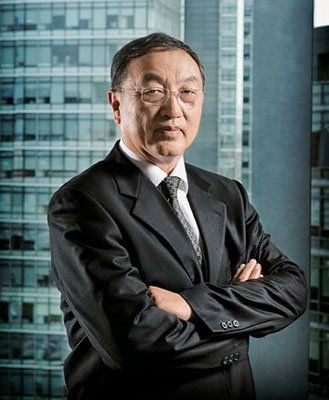(Ecns.cn)--Lenovo has returned to the Fortune Global 500, placing No.449 in the magazine's 2011 ranking of the world's largest corporations by revenue, announced Lenovo on July 8.
The world's No. 4 PC maker behind HP, Dell and Acer first leapt into the Fortune 500 club as early as 2008, but was knocked out in 2009 due to big losses.
Liu Chuanzhi, the founder and current leader of Lenovo, has been playing a driving role in the company's development.
As a successful businessman as well as a graduate from a military school, Liu has the combined qualities of a soldier and the know-how of an entrepreneur.
Starting from scratch with about 200,000 yuan ($31,000) borrowed from the Chinese Academy of Sciences, Liu grew Lenovo into a listed enterprise with an annual revenue amounting to hundreds of billions of yuan.
Liu was born in 1944 in Shanghai and grew up during a turbulent period in China's history, an experience which later deeply influenced him, especially in his career.
He attended the Xian Military Communication Engineering College from 1961 to 1966, specializing in radar systems.
After graduation Liu became a researcher with the Chinese Academy of Sciences until the Cultural Revolution (1966-1976).
From 1968 to 1970 he was transferred to a state-owned rice farm, since at that time the country's policy required young adults from cities to go to the countryside to work with and learn from peasants.
Liu return to the Chinese Academy of Sciences in 1970 as an engineer-administrator until he co-founded Legend (Lenovo's original name) in 1984.
Though life was hard, Liu felt grateful for the painful yet beneficial training he received in military school.
"The military school shaped me. It steeled my will, which helped me to develop Lenovo into a successful company," said Liu.
To him, managing a company is similar to leading troops, in which discipline must be strict and impartial.
Even Liu himself was once punished for being late. "Getting punished by standing in front of colleagues is embarrassing, yet quite effective," noted Liu.
With such strict enforcement, Lenovo grew from a commission merchant of IBM into a leading PC maker that eventually bought IBM's PC division in 2004.
"Maybe only those who go through dramatic changes can understand the painstaking hardships," Liu sighed.
In 1984, Liu decided to start his own business with 10 other staff members and a loan of 200,000 yuan from the Chinese Academy of Sciences.
At the very beginning, the company was housed in a small room in Beijing that barely covered 20 square yards.
"It wasn't easy," said Liu during an interview with Asiaweek on June 13, 1997. "The lowest thing you could do in the early 1980s, as a scientist, was to go into business. China had a strict planned economy and there was barely room for a freewheeling company like ours."
Legend grew by distributing foreign-made computers like IBM and peripherals but, according to Liu, confronted various problems and challenges.
Liu once was cheated by a company in Shenzhen, Guangdong Province. In early 1987, Liu paid 3 million yuan to buy computers from a Shenzhen dealer. However, after he wired the payment, the dealer never sent him the products.
Realizing that he had been cheated, Liu flew to Shenzhen and waited in front of the dealer's house for a whole night.
"I had thought of beating the guy once he showed up," recalled Liu.
After that, Liu suffered from a nervous breakdown. Every time he woke up from a bad dream, he could not go back to sleep for the rest of the night.
In 1991, when the wars between big chip manufacturers turned white-hot, Liu was diagnosed with Ménière's disease, a disorder of the inner ear that can affect hearing and balance to a varying degree. However, putting his company as the top priority, Liu went back to work after only two days of rest.
According to Liu, Lenovo's success also lies in the company's mission, which focuses on serving the country in an honorable manner.
Liu said in a speech on Lenovo's 20th anniversary in 2004 that "Lenovo's vision is to serve the country and grow into a leading international enterprise that is both trustworthy and respectable."


















